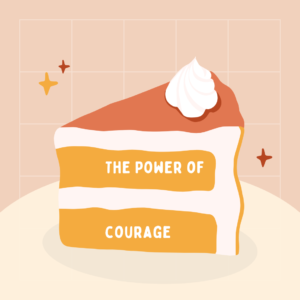Released in 2002, “Makdee” is a Hindi-language children’s film directed by Vishal Bhardwaj. This critically acclaimed movie weaves a captivating story that goes beyond its fairy tale-like premise. It explores themes of courage, redemption, and the blurred lines between good and evil. In this blog, we delve into the valuable lessons we can learn from “Makdee” and how it continues to resonate with audiences even today.

One of the central themes in “Makdee” is the power of courage in overcoming one’s fears. The protagonist, Shweta (played by Shweta Prasad), is a young girl who faces her deepest fears and confronts the witch-like woman known as Makdee. Despite the ominous stories surrounding Makdee, Shweta gathers her courage and ventures into the witch’s mansion, ultimately discovering the truth behind the myths. This teaches us that courage is not the absence of fear but the ability to confront it head-on, leading to personal growth and the conquest of our inner demons.

Another significant lesson from “Makdee” is the transformative power of redemption and compassion. The character of Makdee, played brilliantly by Shabana Azmi, initially appears as a wicked witch feared by the villagers. However, as the story unfolds, we realize that Makdee’s true nature is complex, and she carries a burden of regret and loneliness. Through Shweta’s empathy and understanding, she helps Makdee find redemption, highlighting the importance of compassion and second chances. This teaches us that judging others based on appearances can lead to misunderstandings, and forgiveness and compassion can bring about positive change.

“Makdee” challenges the notion of clear-cut divisions between good and evil. The film blurs these lines, reminding us that people and situations are often more nuanced than they first appear. Makdee’s character embodies this complexity, as she is not entirely evil but driven by circumstances and a tragic past. This narrative choice encourages viewers to look beyond surface judgments and seek understanding and empathy, recognizing the potential for redemption and transformation in everyone.

The sibling bond between Shweta and her mischievous twin brother, Bittoo (also played by Shweta Prasad), is a heartwarming aspect of “Makdee.” Their playful banter, unwavering support, and shared adventures emphasize the significance of sibling relationships. The film reminds us of the unique connection and camaraderie that siblings share, providing a source of strength, companionship, and encouragement.

“Makdee” beautifully showcases the power of storytelling as a means to inspire, teach, and heal. The film incorporates captivating folklore and local legends, demonstrating how stories can shape our perceptions and influence our lives. It emphasizes the importance of preserving cultural narratives and passing them on to future generations, as they carry valuable lessons and moral teachings.
“Makdee” is a cinematic gem that goes beyond its children’s film genre, offering valuable lessons for viewers of all ages. The movie’s exploration of courage, redemption, the blurred lines between good and evil, sibling bonds, and the power of storytelling leaves a lasting impact. It serves as a reminder that even in the face of fear and darkness, compassion, empathy, and the pursuit of truth can pave the way to personal growth and transformation. As we watch “Makdee,” we are inspired to reflect on these lessons and apply them to our own lives, embracing courage, redemption, and the power of empathy in our journey towards becoming better individuals.

One Response
Dear Keen Writer,
Let me find where I can watch this, possibly with subtitles.
Love,
Harshitha